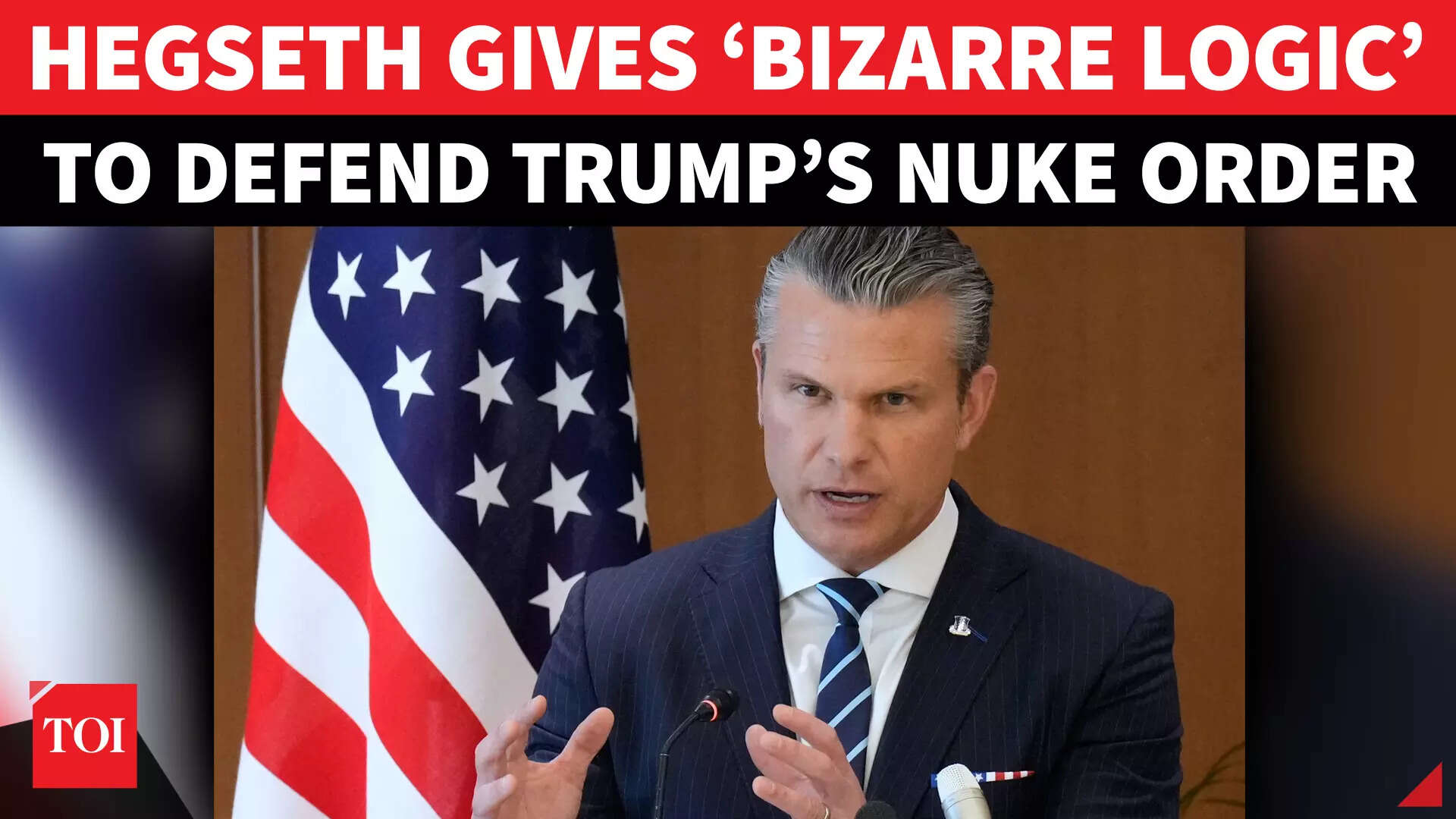Politics
U.S. Resumes Nuclear Testing Amid Controversy, Says Hegseth

The United States has announced a controversial decision to resume nuclear weapons testing, a move that has drawn sharp responses from global leaders. During the ASEAN Defense Ministers’ Meeting in Kuala Lumpur, U.S. Secretary of War Pete Hegseth defended this directive from President Donald Trump, claiming that it would bolster America’s nuclear deterrent and, paradoxically, make the likelihood of nuclear conflict “less likely.”
In his remarks, Hegseth emphasized the importance of maintaining a “credible nuclear deterrent,” asserting that testing is essential to ensure national security. He stated, “Peace through strength has always been our strategy. By enhancing our capabilities, we reaffirm our commitment to peace while preparing for any potential threats.”
The decision to restart nuclear testing comes after a hiatus of 33 years, a period during which the focus shifted towards arms reduction and diplomatic negotiations. Critics of Trump’s order worry that it may trigger a new arms race, escalating tensions between nuclear powers. The potential implications of this order have sparked significant debate among international relations experts and political leaders worldwide.
Opponents argue that resuming nuclear tests could undermine decades of non-proliferation efforts and destabilize global peace. The ASEAN Defense Ministers’ Meeting served as a platform for various nations to express their concerns regarding the possible ramifications of the U.S. decision on regional security dynamics.
While Hegseth reiterated the U.S. position of seeking peace rather than conflict, he underscored that this peace must be backed by unmatched military strength and readiness. The announcement has reignited discussions about the effectiveness of nuclear deterrents in contemporary security strategies, particularly in a world where geopolitical tensions are on the rise.
As nations grapple with the implications of this policy shift, the focus now shifts to how international communities will respond. Many are closely monitoring the developments in nuclear policy, assessing the potential for increased instability and the impact on existing treaties aimed at preventing the proliferation of nuclear weapons.
In conclusion, the U.S. decision to resume nuclear testing marks a significant turning point in its defense strategy, leading to renewed discussions about global security, deterrence, and the complex nature of international relations in the 21st century. As this situation unfolds, the dialogue among global leaders will be critical in shaping the future trajectory of nuclear arms policy.
-

 World5 months ago
World5 months agoSBI Announces QIP Floor Price at ₹811.05 Per Share
-

 Lifestyle5 months ago
Lifestyle5 months agoCept Unveils ₹3.1 Crore Urban Mobility Plan for Sustainable Growth
-

 Science4 months ago
Science4 months agoNew Blood Group Discovered in South Indian Woman at Rotary Centre
-

 World5 months ago
World5 months agoTorrential Rains Cause Flash Flooding in New York and New Jersey
-

 Top Stories5 months ago
Top Stories5 months agoKonkani Cultural Organisation to Host Pearl Jubilee in Abu Dhabi
-

 Sports4 months ago
Sports4 months agoBroad Advocates for Bowling Change Ahead of Final Test Against India
-

 Science5 months ago
Science5 months agoNothing Headphone 1 Review: A Bold Contender in Audio Design
-

 Top Stories5 months ago
Top Stories5 months agoAir India Crash Investigation Highlights Boeing Fuel Switch Concerns
-

 Business5 months ago
Business5 months agoIndian Stock Market Rebounds: Sensex and Nifty Rise After Four-Day Decline
-

 Sports4 months ago
Sports4 months agoCristian Totti Retires at 19: Pressure of Fame Takes Toll
-

 Politics5 months ago
Politics5 months agoAbandoned Doberman Finds New Home After Journey to Prague
-

 Top Stories5 months ago
Top Stories5 months agoPatna Bank Manager Abhishek Varun Found Dead in Well









